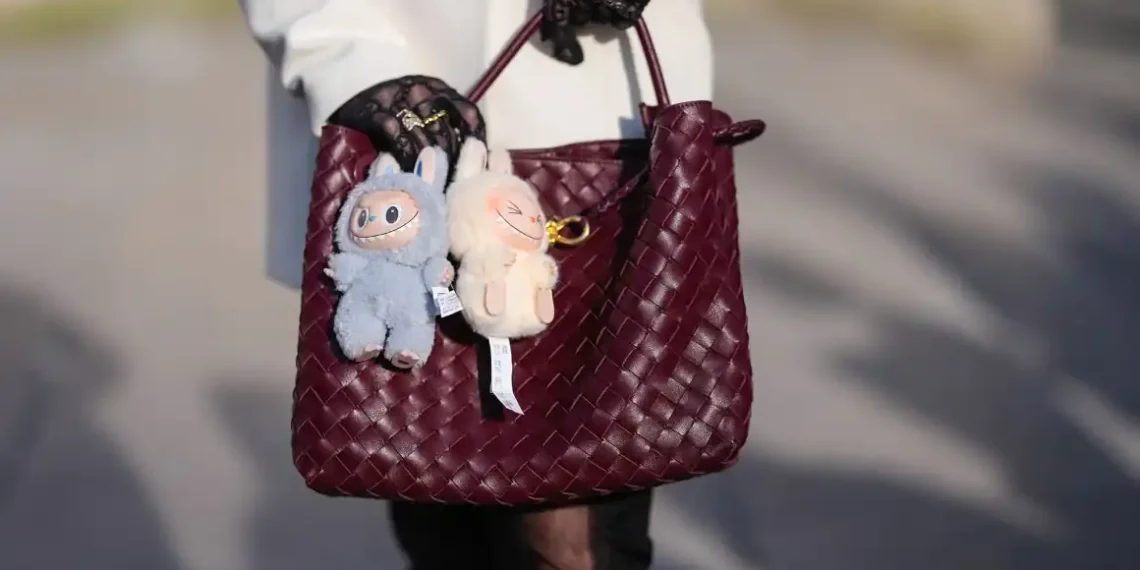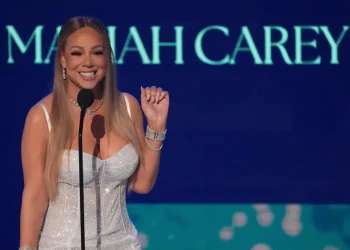The Bizarrely Adorable Chinese Toy That’s Winning Over America—Tariffs Be Damned
Move over, luxury handbags—there’s a new status symbol in town, and it looks like something out of a fever dream.
Meet Labubu, the gremlin-like plush toy that’s become a global obsession. With its mischievous grin, glowering eyes, and jagged teeth, it may not scream “cute” at first glance. But for fans like Naomi Lin, a medical student in Nebraska, Labubu is a must-have accessory—right alongside her Chanel.
Lin owns dozens of these palm-sized plushies, often dressing them up in mini designer outfits. “It’s high demand. On par with a luxury item,” she said, admitting she once spent hundreds just to snag a limited-edition Labubu through a TikTok Live auction.
A Pop Culture Phenomenon
Labubu is part of a larger universe of characters created by Chinese toy giant Pop Mart, whose mysterious “blind box” toys have sparked long lines and frenzied shopping sprees worldwide. Buyers don’t know which character they’re getting until they open the box—adding an addictive thrill to the hunt.
Since their debut in The Monsters storybooks back in 2015, Labubus and friends—like Baby Molly, Dimoo, and Crybaby—have become mainstays of Gen Z culture, frequently dangling from backpacks and handbags from Los Angeles to Bangkok.
Despite U.S.-China trade tensions and a broader economic slowdown, Pop Mart is thriving. In 2024, Labubu alone brought in a whopping 3 billion yuan ($410 million) in revenue. Pop Mart’s overseas business exploded with a 375% revenue increase, including an eye-popping 900% growth in the U.S., according to Citigroup.
Plushies, but Make It Luxury
These aren’t your average stuffed toys. Some Labubus sell for $85 at retail and resell for even more on sites like StockX. New releases often result in hours-long lines and shopping mall stampedes. Rihanna owns one. K-pop icon Lisa confessed to blowing all her money on blind boxes during her global tours.
For many, these toys offer an affordable taste of luxury in uncertain times. “People are looking for joy,” said Ali Domrongchai, a New York food editor who recently joined the fandom. “They’re silly guys,” she said with a laugh. “Not that scary.”
A Cultural Obsession with ‘Cute’
Why the obsession? Experts say it taps into a long-standing Western fascination with cute Asian imports—think Hello Kitty and Pokémon. Anne Cheng, a Princeton professor, calls it a paradox: while Asian people face stereotypes, the products they create—especially when bite-sized and “boxable”—are widely embraced.
Even within families, Labubu fever is contagious. Lin’s father, who brought home the family’s first Labubu from Taiwan, now has a Crybaby plush on his suitcase.
And the appeal cuts across age groups. Domrongchai’s great-aunts—both in their 80s—sport Labubus on their Louis Vuitton bags.
Blind Boxes and the Thrill of the Gamble
The mystery behind each blind box gives fans a rush comparable to gambling. “It plays into your desire for collecting,” Cheng explained. China even imposed restrictions in 2023, banning blind box sales to children under 8 and requiring parental consent for older kids.
Still, the market continues to explode—especially with competitive pricing. Most figures cost $20–$40, offering a “cheap luxury” for fans around the world.
Will Tariffs Burst the Bubble?
With U.S.-China tariffs still looming, Pop Mart is adapting. Though they say customers won’t pay extra, new collections—like the pastel tie-dyed Labubus—are creeping up in price, now at $27.99, about $6 more than previous lines.
Citigroup analysts predict the company will either hike U.S. prices further or expand in other markets to keep its edge. So far, Pop Mart’s stock is outperforming Chinese tech giants like Tencent and Alibaba.
Knock-Offs, Dupes, and Dollar Store Alternatives
As with any craze, knock-offs are inevitable. Fans warn against “fauxbubus,” which often come with mangled smiles or cheap fur. Meanwhile, discount chains like Miniso and Daiso sell similar blind box toys for under $5—giving budget fans a chance to join the hype.
And no, that Labubu on Lin’s Chanel bag isn’t wearing real designer. The outfit came from AliExpress, where mini accessories for plushies are trending on their own.
Can the Craze Last?
Whether Labubu fever will burn out or grow into the next Beanie Baby-level craze remains to be seen. But for now, it’s clear that these quirky creatures offer something consumers desperately want: joy, surprise, and just a little bit of weirdness in their everyday lives.
As Domrongchai puts it, “Once you spend time with them, you get it.”
This article was rewritten by JournosNews.com based on verified reporting from trusted sources. The content has been independently reviewed, fact-checked, and edited for accuracy, neutrality, tone, and global readability in accordance with Google News and AdSense standards.
All opinions, quotes, or statements from contributors, experts, or sourced organizations do not necessarily reflect the views of JournosNews.com. JournosNews.com maintains full editorial independence from any external funders, sponsors, or organizations.
Stay informed with JournosNews.com — your trusted source for verified global reporting and in-depth analysis. Follow us on Google News, BlueSky, and X for real-time updates.














